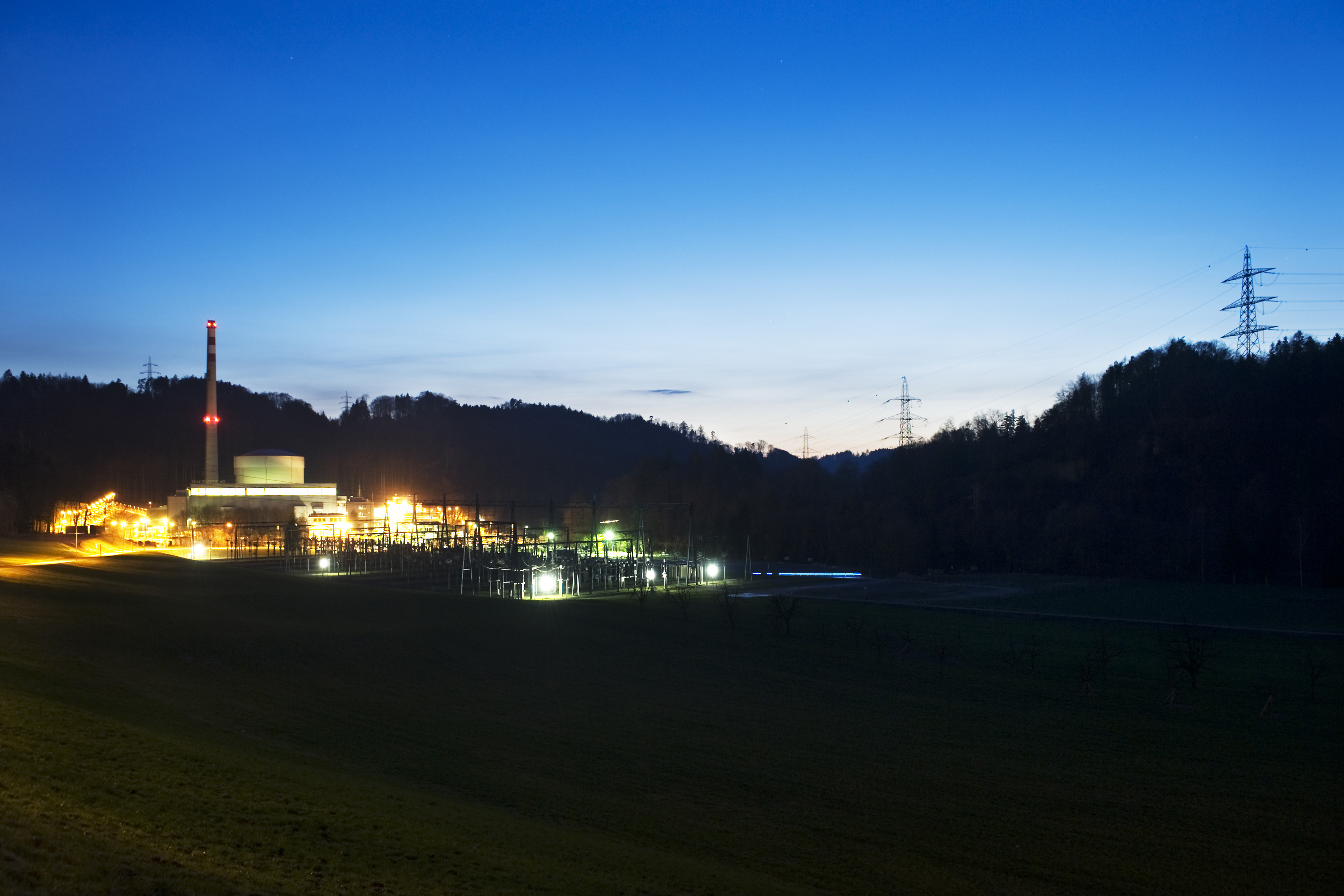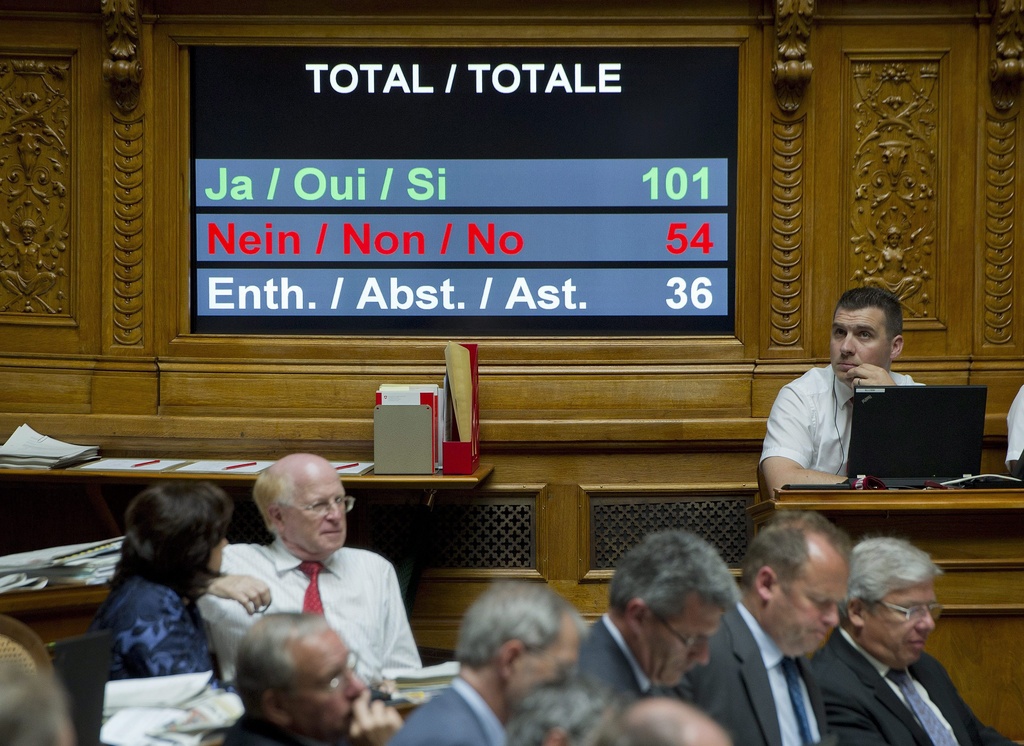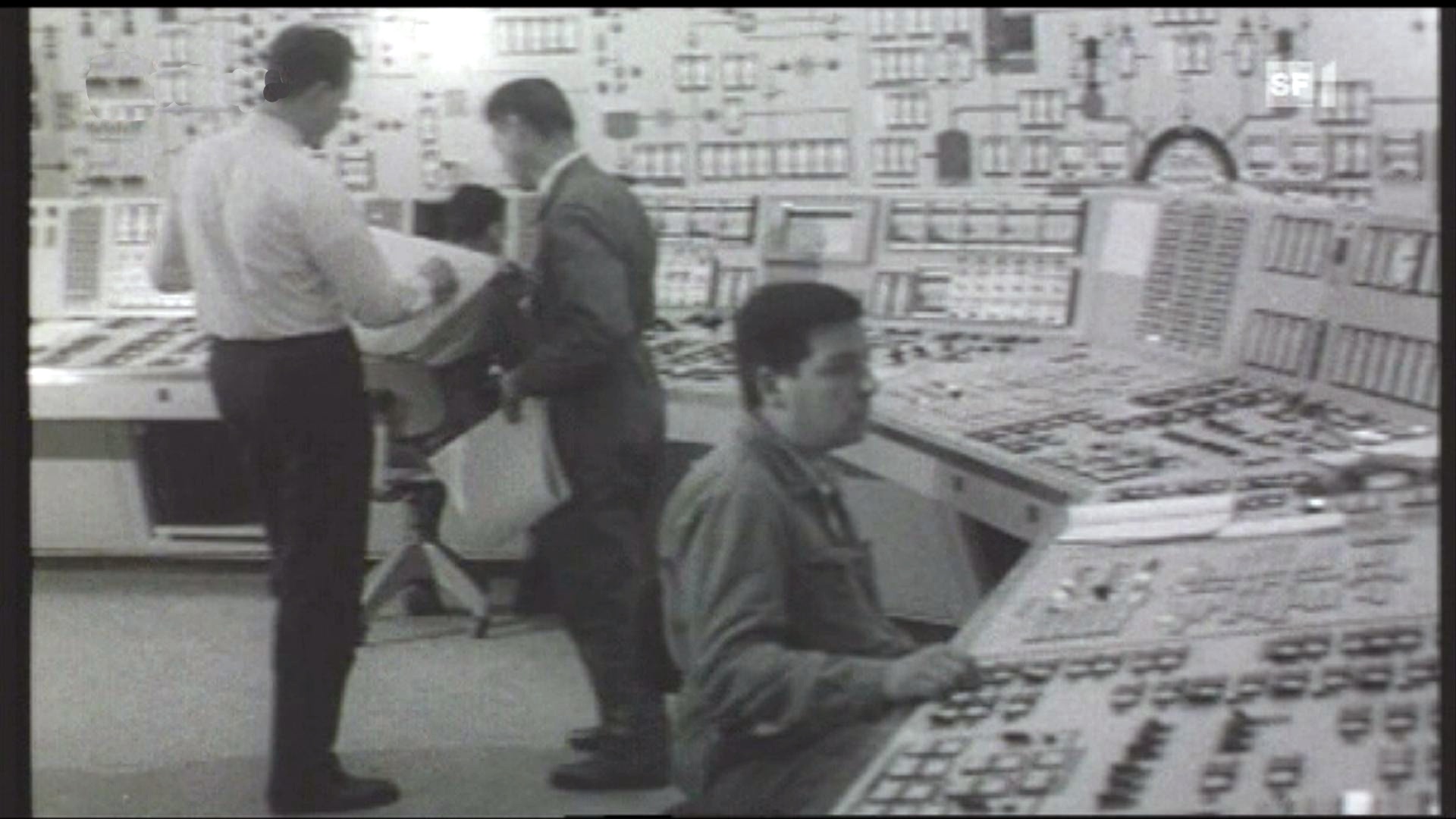Door “still open” for new Swiss nuclear reactors

The accident at Fukushima in Japan seems to have had little impact on global attitudes towards nuclear power, a Swiss energy official tells swissinfo.ch.
Jean-Christophe Füeg, head of international energy affairs at the Federal Energy Office, explains why, despite the decision to phase out nuclear power in Switzerland, the door remains open for the construction of new generation reactors.
Six months ago a magnitude-9 earthquake and tsunami knocked out reactor cooling systems at Fukushima Daiichi nuclear plant, 240 km north of Tokyo, triggering meltdowns in three of the six nuclear reactors and radiation leaks. Japan is still working to bring the plant under control. It also faces a huge and costly radiation clean-up near the plant.
The Swiss government declared in May that it would phase out the use of nuclear power by 2034 by not replacing the country’s existing nuclear reactors when they reached the end of their lifespan.
swissinfo.ch: What impact has Fukushima had on attitudes towards nuclear power?
Jean-Christophe Füeg: In Switzerland and Germany we are phasing out or exiting nuclear power, but this is the exception rather than the rule if you look globally.
In most countries, nuclear plants will continue but to a lesser extent. They may be slowed down as safety regulations will be revisited and plants will become costlier than in the past.
swissinfo.ch: What about public confidence in nuclear power?
J-C.F.: Fukushima has had a certain impact on public attitude but only marginal – it hasn’t tipped basic opinions, whether for or against.
It’s a difficult question; it could be cultural. Why are Germans vehemently against nuclear power and their neighbours the Dutch pretty indifferent and likely to go ahead with plans to build a new plant, which they endorse? How do you explain that Danes are so anti-nuclear and the Swedes, who tried to exit nuclear power for 30 years, are now in favour of nuclear power? It’s a big riddle.
swissinfo.ch: What were the main failings that led to the Fukushima disaster?
J-C.F.: It’s premature to reach a conclusive assessment, but our safety inspectorate released preliminary insights last week which showed that organisational and cultural factors were the predominant ones.
There were things being done at organisational, emergency- planning and decision-making levels that would have been inconceivable for a Western observer. For example, the general director of the Fukushima plant had to consult the general manager of Tepco [Tokyo Electric Power Company] to start flooding the plants when it was clear that seawater was needed.
Given Japan’s relatively unsatisfactory track record in covering up nuclear-related incidents over recent decades, it seems this had repercussions and was a big factor in contributing to events and their incapacity to deal with the catastrophe.
swissinfo.ch: At an International Atomic Energy Agency (IAEA) meeting in June, Switzerland called for tougher nuclear safety standards but the subsequent draft action plan to prevent a repeat of Japan’s nuclear crisis has reportedly been watered down. Are states less willing to take concerted action as Fukushima fades?
J-C.F.: There is very strong resistance, and even lack of acceptance, by larger, mostly nuclear weapon states, to anything they consider resembles a half-intrusion into their nuclear remit.
Mandatory peer reviews are probably off the cards. And factors surrounding stringent security and safety regulations and the independence of regulators have been toned down and this will continue.
But Switzerland is quite satisfied that at the G20 summit meeting prior to the Vienna IAEA meeting in June our input triggered discussions and we have support from a number of medium-sized European countries. This is probably just the start of a very long discussion that will take years.
swissinfo.ch: The Swiss government declared in May that it would phase out the use of nuclear power by 2034. But is the door still open for the construction of new generation reactors in the future?
J-C.F.: Yes, definitely. The door is always open in Switzerland, as in the end it’s always the people who decide; it’s a matter of ten or 20 years. Today’s governmental decision reflects today’s state of public opinion. No one can tell what the future holds.
swissinfo.ch: Forty per cent of Switzerland’s power needs come from nuclear energy with the remainder mainly from hydropower. How will we fill the nuclear gap and meet growing demand for electricity – two per cent annually – in the future?
J-C.F.: This will be a big challenge. The long-term plan by 2050 is that half of the gap is covered by efficiency gains. This will require a paradigm shift as no economy in the Western world, however efficient, has managed to sustain economic and demographic growth while reducing the demand for electricity.
The other half will be met by renewable energies, but so far we are only on track to meet 20 per cent of that [half]. This may be increased via hydropower or by solar energy as costs come down, but there are huge uncertainties. My guess is that gas-fired power stations will become unavoidable, but they will wreak havoc with the carbon dioxide balance.
An earthquake and tsunami off northeast Japan on March 11 knocked out cooling systems at Fukushima Daiichi nuclear plant causing meltdowns of nuclear fuel rods at three of the plant’s six reactors. The company in charge of the plant, Tepco, has so far cooled two of the three reactors and four of its spent fuel pools. It hopes to bring them all to a state of cold shutdown by January.
Nearly 80,000 people were forced to evacuate their homes, most of them from a 20-km radius around the plant, and many are living in shelters or temporary homes.
The accident is likely to have released about 15 per cent of the radiation released at Chernobyl in 1986. But that is still more than seven times the amount of radiation produced by Three Mile Island accident in the United States in 1979.
Heightened public fears have halted nuclear reactors that underwent regular maintenance, and only 11 of 54 reactors are now operating.
The disaster spurred a rethink about nuclear energy worldwide and calls for more concerted safety measures. The crisis prompted then Prime Minister Naoto Kan to say he believed Japan should wean itself off nuclear power and to rely more on renewable sources such as solar power.
Kan introduced stress tests for nuclear power stations to see how they would withstand disasters. Current Prime Minister Yoshihiko Noda thinks no new nuclear plants should be built in the future but that reactors whose safety has been confirmed should be restarted.
Switzerland has five nuclear power stations: Beznau I, Beznau II, Mühleberg, Gösgen and Leibstadt. They account for around 40% of the country’s electricity production but will gradually come off the power grid as of 2019.
In 1990, voters approved a ten-year moratorium for the construction of new nuclear power plants. In 2003 – three years after the end of the freeze – the electorate rejected an extension of or definite withdrawal from nuclear energy programmes.
Three sites for new nuclear power stations (Beznau, Gösgen and Mühleberg) were given the stamp of approval by the national regulatory authorities.
The government announced in May that it planned to decommission the five power stations by 2034, once they reach the end of their lifespan.
The House of Representatives has already agreed, but the Senate Energy Committee has modified the proposal, recommending instead banning the construction of nuclear plants “of the current generation”. On May 8, the Swiss government ruled out any return to nuclear power once current stations are shut down. The Senate is due to vote on the issue on September 28.

In compliance with the JTI standards
More: SWI swissinfo.ch certified by the Journalism Trust Initiative














You can find an overview of ongoing debates with our journalists here . Please join us!
If you want to start a conversation about a topic raised in this article or want to report factual errors, email us at english@swissinfo.ch.